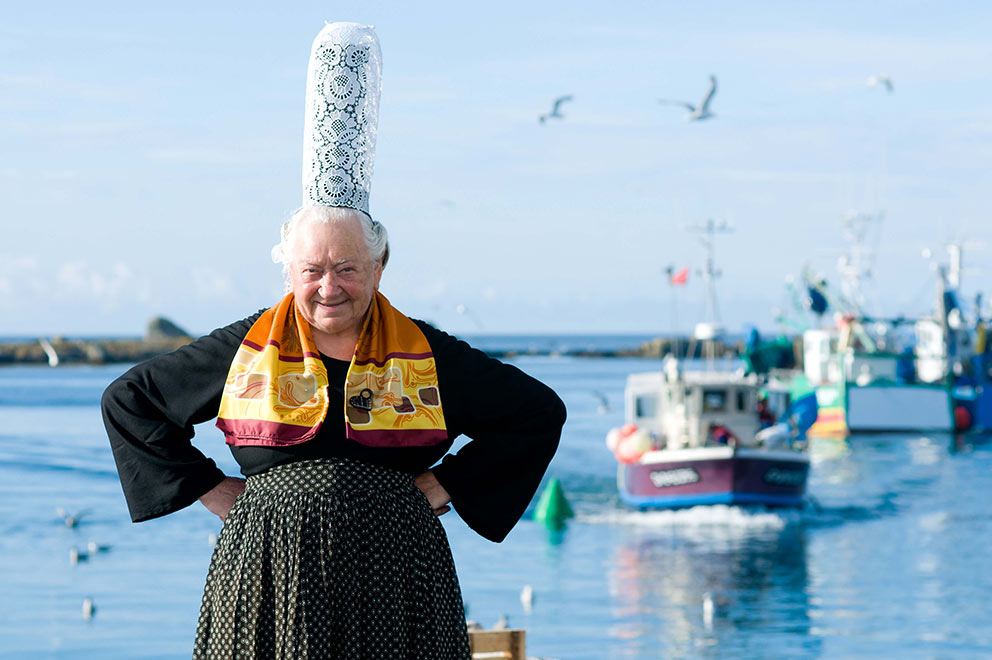
If you thought that regional enclaves like Asterix and Obelix’s Gaul belongs to the past – think again! In some regions, the cultural identity of the past remains strong and is still celebrated by the locals…
Before the French Revolution, France wasn’t centralised as it is now. Though ruled by the King, regions were effectively governed by local aristocracy and the church. They were the main landowners, the holders of political and economic power. Regions often did their own thing administratively and language.
After the French Revolution, government, systems and rules were centralised. And so was the language. It’s estimated that around half of France spoke French at the time of the Revolution. The rest spoke different dialects – Breton, Occitan, Basque, Flemish and more. Over time, French replaced the local languages, local cultures became diminished.
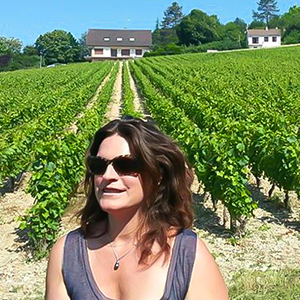
Founder
The Basque Country straddles northern Spain and southern France, near the Pyrénées. It’s an unofficial land with no official borders and in France is known as the Pays Basque.
The Basques have a unique culture, language and traditions that are unlike those of their Spanish and French neighbours and they are fiercely proud of their heritage.
Called Euskara, the Basque language is one of the oldest living languages still spoken today. It’s estimated around 1 million people speak Euskara. Whilst it’s an official language in Spain, it’s not recognised as such in France but you will hear it commonly spoken, especially in small villages, in Bayonne, regarded as the capital of the French Basque country, in the lovely coastal town of Anglet and even in glitzy Biarritz (three areas known conjointly as B-A-B).
The Basques have a distinct and lively culture. Every village has an area for playing the national ball game pelote. The people have a love of festivals, traditional dress and folklore. You’ll spot the Basque flag flying – a red field, a white vertical cross and a green diagonal one) throughout the region, as well as another common Basque symbol, the lauburu (like a curly four-leaf clover), signifying prosperity, or life and death.
And, just as for their French neighbours, eating is a national pastime in the Basque culture. There are an abundance of Michelin-starred restaurants and an incredible 1500 secret gourmet societies known as txokos scattered throughout the Pays Basque.
This pickled in the past region is deliciously authentic…
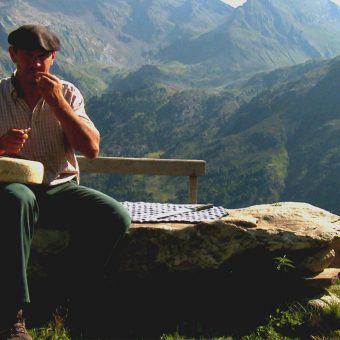
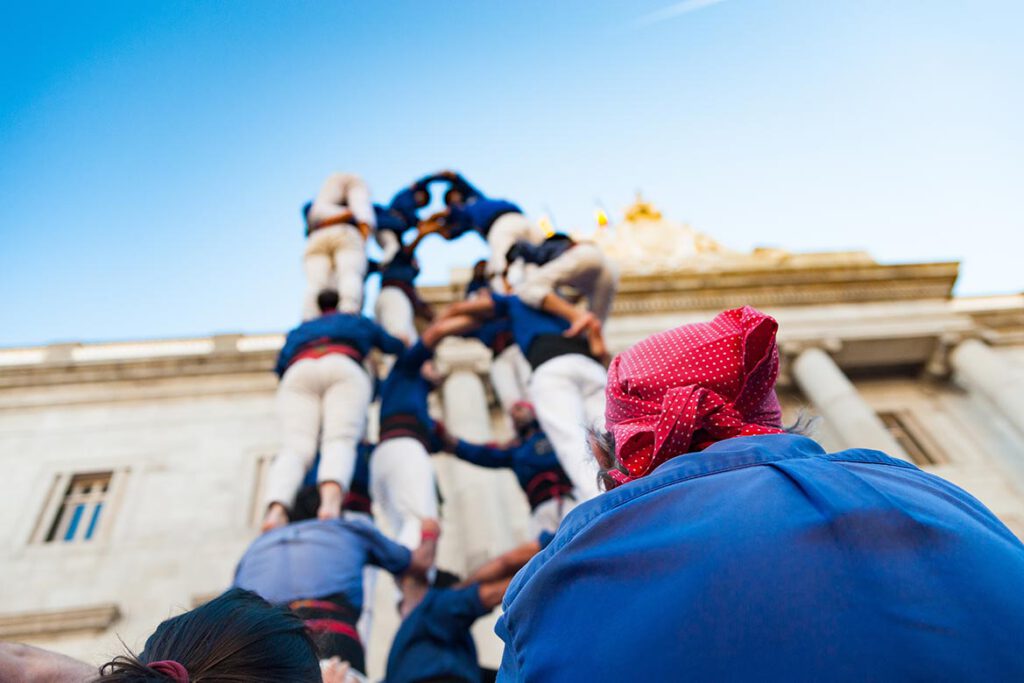
The Pyrénées-Orientales in the far south of France borders and Spain is lapped by the Mediterranean Sea. It’s a department that boasts a variety of landscapes, golden sandy beaches, rocky coast, a large rural area and agricultural plains, mountains and valleys. Despite the diversity in landscapes, the people are united by their Catalan heritage and the department is also known as the “Catalan Pyrenees” or “Le Pays Catalan”, the Catalan Country.
Catalan is a Romance language, spoken for at least 1000 years and originating in Catalonia on the Spanish side. Catalonia was once a larger area which in the middle ages encompassed part of France – now the Pyrénées-Orientales. A roughly triangular region in Spain’s far north-east corner, Catalonia is separated from southern France by the snow-peaked Pyrenean mountains. After the French beat Spain at the Battle of Dunkirk in 1658, a treaty ceded the northern parts of Catalonia to the French crown, and the area has remained French ever since. But many communities in the Pyrénées-Orientales have never forgotten their heritage. The Catalan language has never died, even though for a period it was illegal. You’ll see street signs with text in bright red, set against a rich yellow background, the colours of Catalonia. Many houses display the Catalan flag. Perpignan, the department capital is the biggest Catalan city after Barcelona.
Catalan specialities are proudly served in restaurants and traditions such as folk songs and dances, especially the Sardana, a community dance, are performed with enthusiasm.
In this most beautiful and unspoiled part of France you’ll discover a land rich in history and a warm welcome…
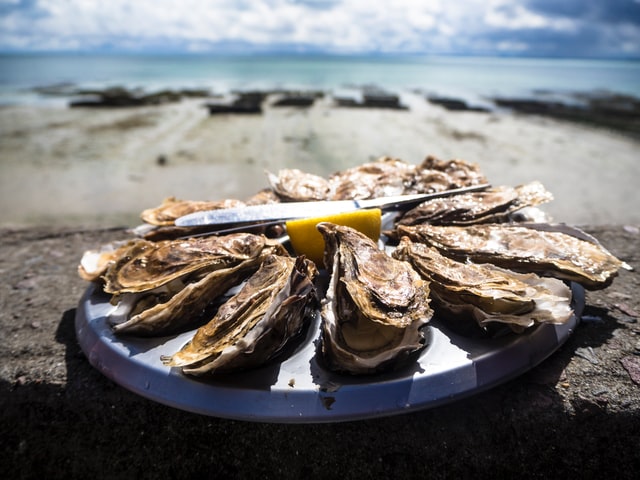
Did you like the content? Share it now!
Situated on France’s north-western peninsula, Brittany has a strong regional identity, famous for its festivals celebrating Celtic folk music and dancing.
The link to the Celtic heritage is strong in Brittany. The Bretons came from Wales and England in the 5th century, absorbing the old tribes and bringing their Celtic language with them. It was separated from France until Claude, the daughter of the Duchess Anne married the future Francois 1 in 1515 and ceded her rights to Brittany to her husband.
Over time the Breton ways were diminished but in the 1930s there was a concerted effort to revive the cultural heritage. Traditional dance groups were formed and Breton music featuring bagpipes became a folk fashion all over France. You may also see the traditional sport of Breton wrestling, where, before they start to throw each other to the ground, the wrestlers kiss each other loudly three times!
Brittany is a land of legends. In the mysterious forest of Brocéliande, the trees, moors and ponds whisper stories of King Arthur, awakening the spirits of the wizard Merlin and the fairy Viviane. Home to many megalithic sites, the area is perfect for archaeology enthusiasts. Saints are a strong part of Brittany’s heritage and everywhere in the region you will discover ancient chapels, statues and monuments dedicated to the saints.
Brittany’s destiny is tied to the sea and if its lighthouses could talk they would tell tales of epic storms. With more than 1700 miles of coastline the regional cuisine is largely based on what comes from the sea and you’ll taste the freshest seafood and shellfish, juicy oysters, langoustines and the famous Breton lobster. Feast on the famous crepes, sweet and savoury, and enjoy a cider or local aperitif Kir Breton – cider and crème de Cassis. Look for small ‘auberges’ and ‘tables d’hotes’ where you will taste the most authentic local food – resistance is futile.
if you thought that regional enclaves like Asterix and Obelix’s Gaul belongs to the past – think again!
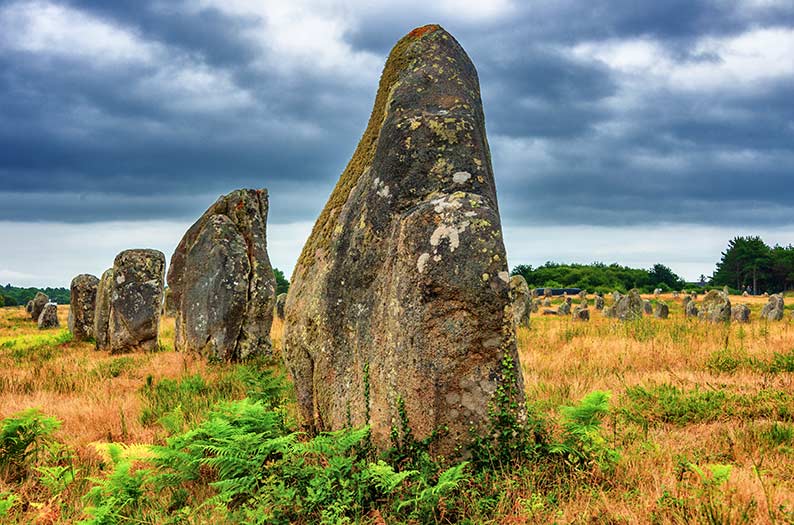
Seeking for a place to get inspired? A place to embrace freedom, smell the joy and celebrate Nature in its purest form? Check out some of our sneak peeks in France here or & get in touch!
To provide the best experiences, we use technologies like cookies to store and/or access device information. Consenting to these technologies allows us to process data such as browsing behavior or unique IDs on this site. Not consenting or withdrawing consent may negatively affect certain features and functions.
